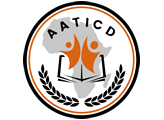Why Attend
Quality management has evolved to become an internationally sought after and a rewarding career. The quality management body of knowledge is developed to cover areas of leadership, communication, strategy, and technical skills in quality and project management among many others. This course aims to develop the skills of participants and provide them with the tools and methodologies that will enable them to shift into this rewarding career. The course will showcase the most common tools and methodologies used by quality professionals. Moreover, the course will highlight some of the leadership traits that every quality professional should develop. The course will also introduce the team development cycle that a quality team should go through. A blend of skills and applications through a practical project are the ultimate deliverables of this unique course.
Course Methodology
The course will challenge the participants with exercises, workshops, and presentations. Role-plays and group discussions will make this course a unique and fun experience for every participant. Assessments and gap analysis tools will be used throughout the course. Videos will also be shown to emphasize and clarify some learning points.
Course Objectives
By the end of the course, participants will be able to:
- Explain the role and impact of leadership to support quality management systems
- Describe the importance of quality in organizations and review various quality schools and teachings by quality gurus
- Assess team dynamics and the role of teams to support continual improvement projects
- Compare the most used quality philosophies and tools and use the most appropriate ones to establish priorities within their organization
- Appraise the ethical commitment needed by quality professionals
Target Audience
Individuals, leaders, supervisors and all those who are engaged in quality management implementation and improvement of organizational performance.
Target Competencies
- Quality management
- Quality control and assurance
- Applying quality tools
- Leadership
- Team management
- Understanding ethics
- Using quality methodologies
Location:
South AfricaTraining Dates:
Each course starts every Monday of each week. Please book your training on a date that is a Monday.Course Duration:
Unit Standard:
NQF Level:
Number of Credits:
Course Fees
Note: Please fill in the online application form on the left or bottom if this page to receive a quotation with detailed pricing from AATICD.How to Apply:
To Apply Simply Fill in the Online Enquiries / Applications form on the Right Sidebar or Bottom of this website https://www.aaticd.co.zaNB:
When filling the online application form; please take note of your desired Training Month, Duration in Weeks and Training Session. This will give us the exact dates you will be attending your classes.Also note that Tuition Fees must be paid upfront on or before training start date. This is to ensure that all resources are made availabe for you before you start. You will not be allowed into training if fees are not paid and verified.
Also note that Tuition Fees Cancellations must be made 14 business working days before the starting date of training. This will allow us to do a 50% refund of the total amount paid. If cancellations are made thereafter note that no refund will be made to delegates.
Tuition Fees include teas and lunch as well as either a laptop or tablet which a delegate will take home free of charge.
Tuition Fee DOES NOT include Accommodation, Dinners and other Extra Curricular Activities or Incidentals. Delegates are expected to fund this on their own. AATICD will not be held accountable for any incidents to delegates.
In-House Trainings are also available for 3 or more delegates for any duration. Please consult with our Administration for such In-House training bookings.
Course Outline
- Leadership and management in quality
- Definition, similarities, and differences
- Can leadership be taught and developed
- Traits of a true quality leader
- Role of leadership in supporting quality management systems
- Situational leadership in quality
- Quality basics and definitions
- Definition and concept of quality
- History of quality
- Benefits of implementing a quality model
- Quality management systems
- ISO9001
- Total quality management
- Cost of poor quality
- The seven quality secrets
- Examples of national quality awards
- Dubai quality award
- Malcolm Baldrige national quality award
- Review of quality gurus
- Deming’s fourteen points
- Juran’s quality trilogy
- Crosby’s zero-defect mindset
- House of quality and Quality Function Deployment (QFD)
- Six Sigma methodology
- Lean principles, 5S and Poka Yoke
- Building teams in a quality management system
- Why team thinking is important in quality management projects
- Barriers to team achievements
- Characteristics of effective teams
- Team development cycle
- Team members selection tools
- Improvement tools and techniques
- Which tool to use
- Brainstorming
- The seven classic quality tools
- Check sheet
- Pareto chart
- Cause and effect diagram
- Histogram
- Scatter diagram
- Control charts
- Flow charts
- Process mapping and process management
- Management elements and planning tools
- Process auditing “Turtle Diagram”
- Failure Mode and Effects Analysis (FMEA)
- Ethics in quality management
- American Society for Quality code of ethics




